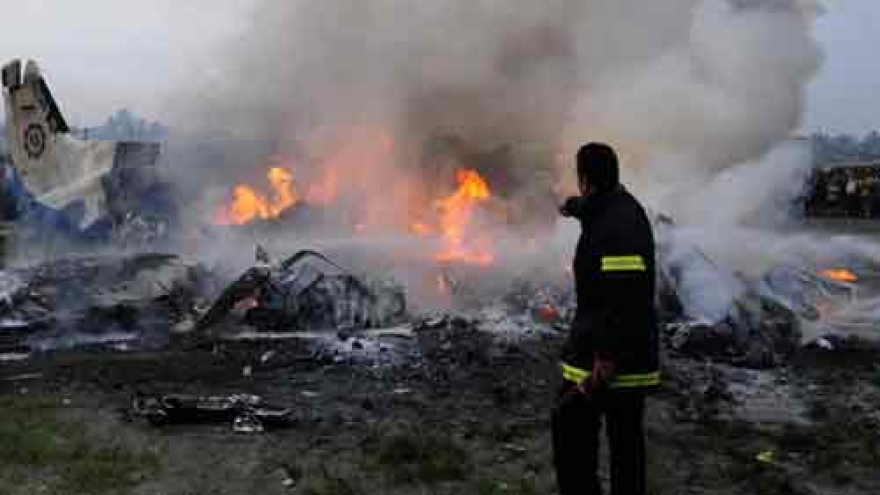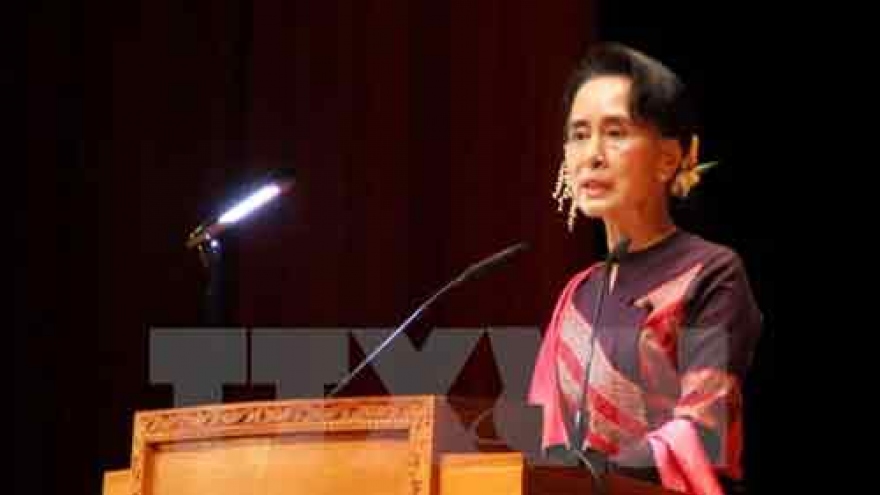Myanmar lays out policy guidelines for peace process
Myanmar's Preparatory Committee for Holding the 21st Century Panglong Ethnic Conference has outlined policy guidelines for the peace process, said spokesman of the President's Office U Zaw Htay on July 6.
 |
The guidelines include allowing non-signatory groups to the Nationwide Ceasefire Accord (NCA) to join the Panglong Conference, relaxation of restriction on inviting political parties that do not hold a parliamentary seat to the conference and the National Reconciliation and Peace Center (NRPC)’s functions in dealing with issues involving international donors and their assistance to the peace process.
Chairman of the Preparatory Committee Tin Myo Win said talks remain to be held with three out of the 21 ethnic armed groups regarding the new government's peace policy.
Earlier, at the July 5 meeting of the Committee in Nay Pyi Taw, State Counselor Aung San Suu Kyi called for inclusion of key figures of the armed groups in the upcoming Panglong Conference.
Reconciliation is not only to be made between the government and the armed groups but also between the government and ethnic nationalities, she stressed.
According to Secretary of the Preparatory Committee U Hla Maung Shwe, a meeting between the State Counselor and non-signatory armed groups, represented by the United Nationalities Federal Council's (UNFC) Delegation for Political Negotiation (DPN), is to be held in Yangon later this month and the 21st Century Panglong Ethnic Conference is slated for the last week of August.
Myanmar's former government and eight out of 15 ethnic armed groups signed the NCA on October 15, 2015.
The Myanmar government and the armed forces established the Union Peace Dialogue Joint Committee and the Joint Ceasefire Monitoring Committee to implement peace process which remains unfinished because the remaining seven have yet to sign the NCA.


